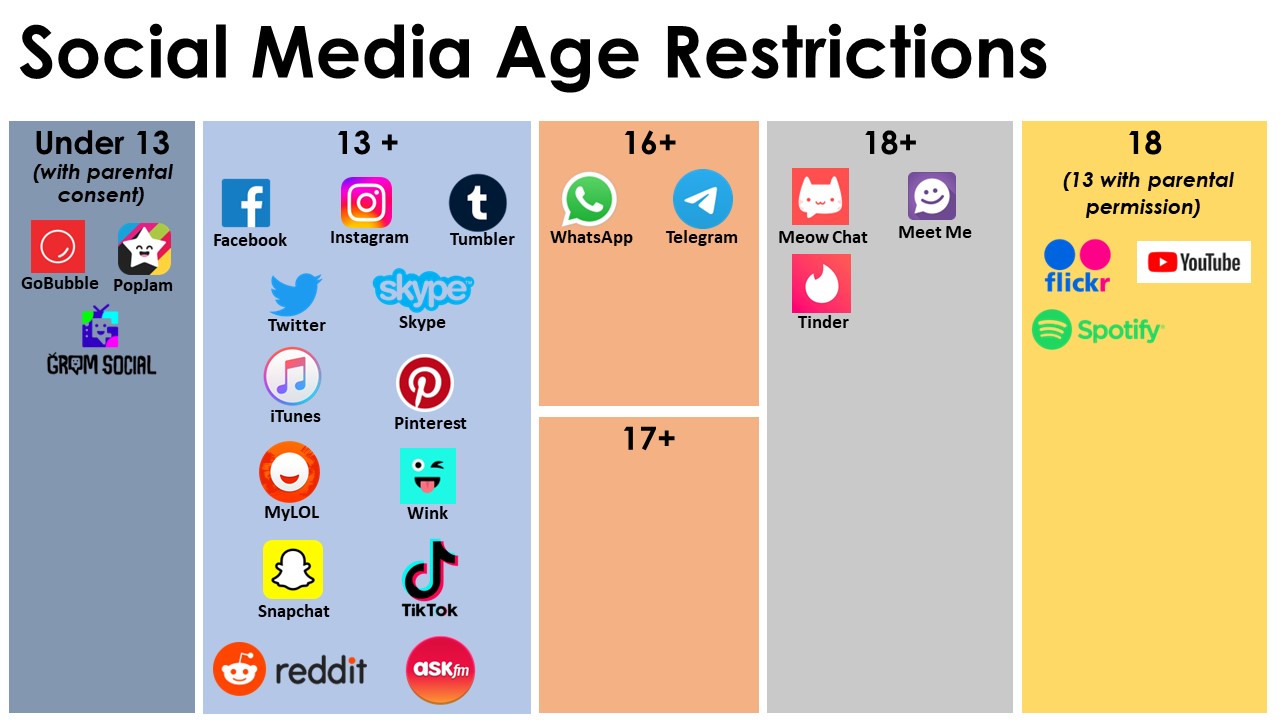


Australia's Prime Minister Anthony Albanese has announced the implementation of age restrictions on social media for those under 16 as part of a larger campaign to increase accountability among tech giants. The responsibility to block underage users now falls squarely on social media companies, with non-compliance resulting in fines for the platforms. This move aligns with a global trend of increasing online safety measures for young users, though enforcing age limits remains challenging due to varying regulations and technical barriers.
Australia Implements Age Restrictions on Social Media for Under-16s
In a significant move to enhance online safety for children, Australia has announced the implementation of age restrictions on social media for those under 16. Prime Minister Anthony Albanese made the announcement as part of a broader campaign to increase accountability among technology giants.
Background
Social media platforms have come under increasing scrutiny in recent years over concerns about their impact on young users. Studies have shown that children are particularly vulnerable to cyberbullying, online predators, and the spread of misinformation.
In Australia, the issue gained prominence after a Senate inquiry in 2019 found that social media companies had failed to adequately protect children from harmful content and behavior. The inquiry made a number of recommendations, including the implementation of age verification measures.
The New Regulations
Under the new regulations, social media companies are responsible for blocking underage users from accessing their platforms. This includes conducting age verification checks and using technical measures to prevent under-16s from creating accounts.
Non-compliance with the regulations can result in fines of up to AUD$10 million for the platforms. The responsibility for age verification now falls squarely on the companies, unlike in some other countries where users are required to self-declare their age.
Challenges in Enforcement
Enforcing age limits on social media remains a challenging task due to varying regulations and technical barriers. Children may use fake birth dates to create accounts, or they may access social media through school networks or public Wi-Fi, which may bypass age verification systems.
However, the Australian government has stated that it will work closely with social media companies to develop effective solutions. It is hoped that the new regulations will deter companies from lax enforcement of age limits and encourage them to invest in robust verification technologies.
Top 5 FAQs
1. Why is Australia implementing age restrictions on social media?
To protect children from the potential harms associated with social media use, such as cyberbullying, online predators, and misinformation.
2. What is the age limit for social media in Australia?
16 years old.
3. Who is responsible for enforcing age restrictions?
Social media companies are responsible for blocking underage users from accessing their platforms.
4. What are the penalties for non-compliance?
Fines of up to AUD$10 million.
5. How will age verification be implemented?
Social media companies will use age verification checks and technical measures to prevent under-16s from creating accounts.
Conclusion
Australia's decision to implement age restrictions on social media is a positive step towards protecting children in the digital age. While challenges remain in enforcing such measures, the new regulations send a strong message to technology giants that they must prioritize the safety of young users. It is hoped that the move will encourage other countries to follow suit and take similar measures to safeguard children from the potential risks of social media.

Prime Minister Narendra Modi celebrates Diwali with Navy personnel aboard INS Vikrant, praising the warship's role in instilling fear in Pakistan. He commemorates India's military might and the bravery of armed forces in Operation Sindoor, while also highlighting INS Vikrant as a symbol of Atmanirbhar Bharat and Made in India. The festive celebrations on board consisted of cultural performances and an air power demonstration, making the occasion deeply symbolic and unforgettable.

Prime Minister Narendra Modi celebrated Diwali with the crew of India's indigenous aircraft carrier INS Vikrant, describing the ship as a symbol of Aatmanirbhar Bharat and Made in India. He saluted the Indian Navy, Air Force, and Army for their courage, skill, and coordination, especially during the 1971 victory over Pakistan. The Prime Minister also highlighted the progress towards self-reliance in India's defence production, with thousands of items now being manufactured domestically and a new indigenous warship or submarine being inducted into the Navy every 40 days on average.

On October 21, Defence Minister Rajnath Singh will honor the sacrifices made by police personnel at the National Police Memorial on Police Commemoration Day. The Memorial serves as a symbol of the strength and selflessness of police officers who have laid down their lives in the line of duty. The central sculpture, 'Wall of Valour', and museum at the Memorial provide a sense of national identity and pride for Police Forces.

Prime Minister Narendra Modi made a surprise visit to INS Vikrant, India's flagship aircraft carrier, on Diwali eve 2025. This marked his first visit to the high seas to celebrate with the Navy personnel stationed there. His visit included cultural activities, a yoga session, and an inspiring address to the naval staff, further strengthening the bond between the leader and the armed forces.

Prime Minister Narendra Modi celebrated Diwali with the Indian Navy on the INS Vikrant aircraft carrier stationed off the coast of Goa and Karwar. The cultural programme organized by the Navy was described by PM Modi as an unforgettable experience. He also praised the dedication and creativity of the naval personnel and highlighted the success of the armed forces in Operation Sindoor with a patriotic song "The Vow of Sindoor". In addition, PM Modi also addressed the country's security forces and lauded their efforts in combating Naxalism.

In a powerful Diwali speech on board INS Vikrant, Prime Minister Narendra Modi lauded the coordination of India's armed forces in Operation Sindoor, which led to a swift surrender by Pakistan. He also emphasized the importance of self-reliance in strengthening the armed forces and highlighted India's progress in manufacturing essential military equipment domestically. He further announced India's goal to become a top defence exporter, with a significant increase in defence exports in the last decade.

Prime Minister Narendra Modi continued his tradition of celebrating Diwali with India's armed forces by visiting the INS Vikrant off the coast of Goa and Karwar. He praised the Navy personnel for their dedication towards the security of the nation and expressed his gratitude to the families of the brave soldiers. PM Modi also witnessed an impressive display of precision and prowess during an Air Power Demo on INS Vikrant, showcasing the technological excellence of the Indian Navy.

Prime Minister Narendra Modi celebrated Diwali 2025 with Indian Navy personnel aboard the indigenous aircraft carrier INS Vikrant, highlighting the ship's strength and psychological impact on adversaries. Commissioned in 2022, the carrier is a symbol of India's self-reliance and strategic resolve. PM Modi praised the bravery and dedication of the naval personnel, reinforcing the bond between the armed forces and the government.

The Allahabad High Court has directed the Jailer of Hisar Central Jail in Haryana to provide an explanation on how self-styled Godman Sant Rampal, currently held in the jail, is able to write and distribute books that allegedly target Hindu deities. This comes after a plea was filed by Hindu Front for Justice, calling for a ban on the books and action against Rampal. The petition alleges that the books contain offensive and provocative language and have been distributed through electronic communication platforms, causing disharmony between religious communities.

Following the latest string of scandals involving Prince Andrew, King Charles was photographed attending a Sunday morning service near his Scottish estate. The King wore a solemn expression as he drove to Crathie Kirk, displaying tension amidst a tumultuous time for the royal family. Recently, Prince Andrew announced his resignation from the Duke of York and membership of the Order of the Garter, the oldest chivalric order in the UK.